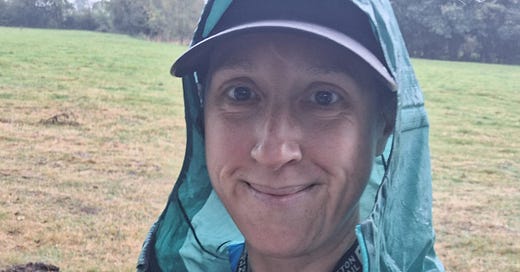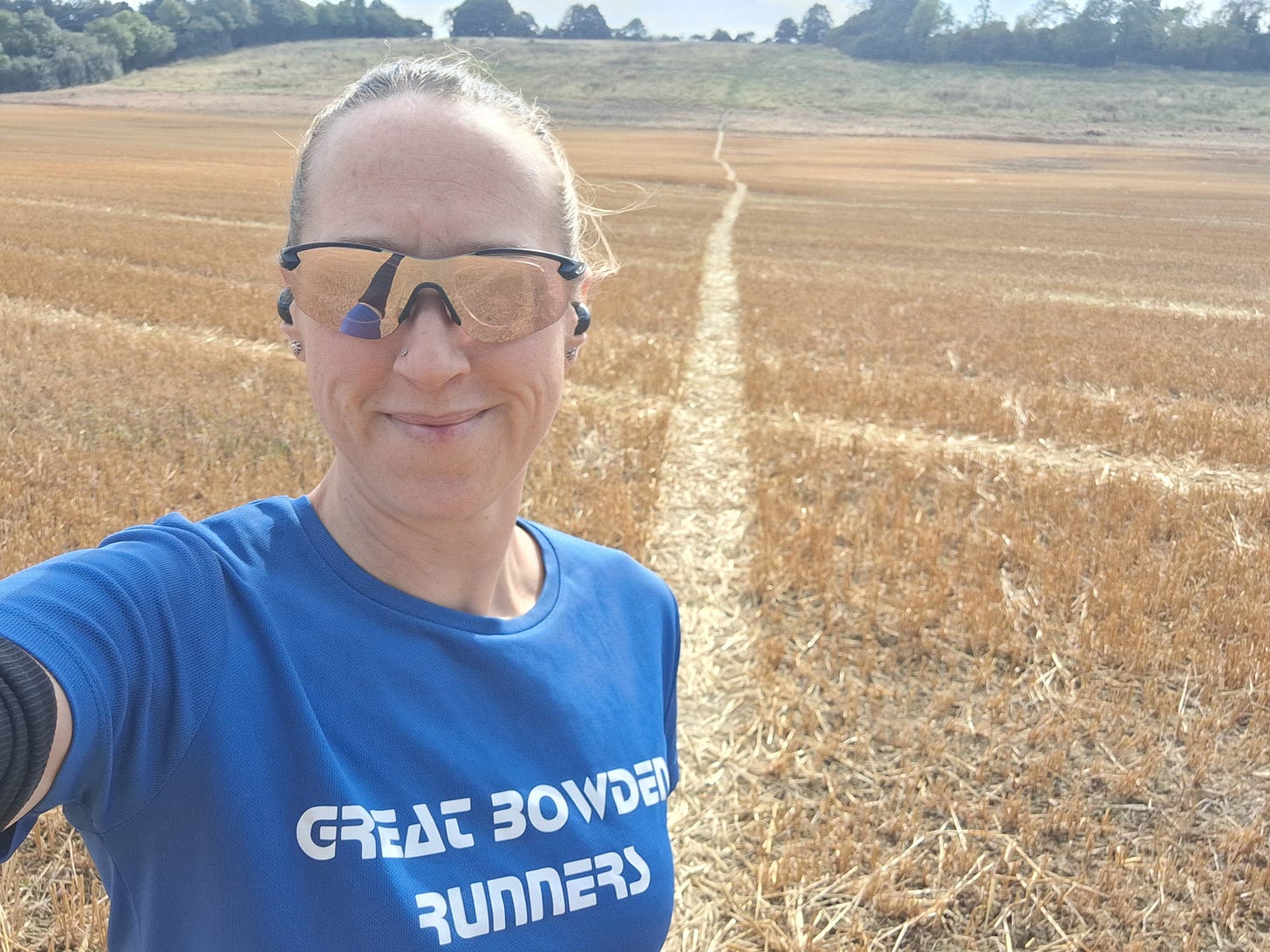Can we trust what runners say online?
From trail running superstars to everyday influencers - who is telling the truth?
I’ll be the first to admit that I love sharing a good stat on Insta. Whether it’s finishing a super long race, gaining a podium position, or hitting a parkrun PB, I like to brag about it on social media.
On Sunday I took part in a local 5-mile race in truly biblical conditions and I finished 2nd female. But when the provisional results came in there was a mysterious woman in 2nd place and I was listed as third. My first thought was “oh god, everyone is going to think I’m lying on Instagram and Strava when I said I came second”. I was confused and annoyed but also a little bit ashamed. Had I been boasting about something that was not true?
Turns out there was a mix up with the results and within a few hours it was corrected. I was indeed in second place. Phew. No need to change the socials and I wasn’t going mad. I don’t have a huge following on Instagram but I still want to post with integrity. Yes, I like to shout about my small wins, but why shouldn’t I? There is nothing wrong with being proud of your achievements.
But I also don’t want to make stuff up, or manipulate the information, to make myself sound better. I recently came first in a 100k race and of course I shouted from the social tops about it. But I’m also not afraid to admit it was a very small race and there was no way I would have had the same result at a bigger event.
All of this got me thinking about two very different dilemmas I came across on the internet this week.
The case of Camille Herron and Wikipedia
Multiple world record breaker Camille Herron is know as one of the planet’s greatest ultra runners. She has many awards confirming this and is four-time IAU International Ultrarunner of the Year and six-time USATF Ultrarunner of the Year. So she has a pretty big claim on the title of world’s best ultra runner. It’s something she celebrates on her Wikipedia page which she uses as an up to date bio of her achievements.
But this week Camille and her husband coach Conor Holt were outed by Canadian Running for removing accolades from other athletes' Wikipedia pages and “fluffing" her own. The magazine claimed they had been regularly editing Camille’s page to boost her accolades whilst degrading the achievements of of ultrarunners Kilian Jornet and Courtney Dauwalter.
The whole who-ha was the talk of my running Discord group, and led to all of Camille’s social media and website being shut-down. In response to the claims Conor released a statement apologising for the whole saga and saying he was 100% responsible.
A lot of runners have been outraged by this story. Me, not so much. As an open source website that anyone can edit I figure that Wikipedia is fair game. I also wonder if Camille was a man whether she would have been derided so heavily. Take boxers for example. The constantly belittle their opponents and claim they are the best in the world. This is part of the game they play.
For Camille, being the best ultra runner in the world is part of her brand, and one which her coach is going to be highly protective of. Why shouldn’t a woman boast about her achievements on Wikipedia?
As for editing other people’s pages, again isn’t that all part of the game? There has been the removal of words from other athlete’s pages but no inaccuracies introduced, from what I understand. And at the end of the day it’s Wikipedia. It’s not the BBC. That hasn’t stopped Camille’s main sponsor Lululemon from dropping her though.
My final thought on this, is that we should remember that Camille is autistic and her husband appears to be her gatekeeper, so perhaps we are burning her at the stake too soon.
Or is it just me?
The case of the bragging influencer
Whilst my Discord group was kicking off about Camille, over on Facebook I spotted runners complaining about influencers. In two seperate running groups people were swapping stories of runfluencers who had been telling porkie pies.
In both cases the Facebook member had run a marathon and spotted an runfluencer they followed on Instagram. In both instances they overtook the runfluencer and finished about an hour ahead of them. This was backed up by Strava stats and the official race results. And yet both sets of influencers were claiming they ran a much faster time and could teach their followers how to run a sub four hour marathon. On further investigation it was clear that they had been posting their moving time (which does not record any stops or pausing the watch) rather than their actual elapsed finish time (the time between when they started and when they crossed the finish line).
Shockingly this happens a lot on social media particularly with influencers who are not coaches or professional runners. They are simply everyday runners trying to inspire other people. And there is nothing wrong with that. But posting moving times instead of elapsed times is disingenuous.
There are thousands of great runfluencers out there (and I have a positive piece about them in Metro newspaper soon) but it pays to be wary. If someone posts something sounding too good to be true, it probably is. If they claim to be running 100 mile weeks and their Strava is only recording 20 miles, then consider whether they are a trusted source. There may be a legitimate reason for the discrepancy but a healthy bit of scepticism is good protection against bogus braggers.
Qualified running coach Michelle Mortimer who heads up the UK Run Chat podcast has some red flags to look out for:
One size fits all plans which don’t account for individual fitness levels or life circumstances
Advice to push through pain / no pain no gain / dismissing injury as just as part of the running process
Overemphasising speed or PBs every race / taking part in races all the time – this can lead to burn out
Runners jumping onto trends (a recent one was not eating or drinking before a long run - don’t do this!)
For a bit of light relief into the ridiculous things some influencers will do to gain attention follow Influencers in the Wild - it’s a hoot! (Thanks for the recommendation Paul Albon).
Thanks for reading this week’s newsletter. If you have any running news for me, let me know! Send feedback to lilycanter@yahoo.co.uk or suggest topics you’d like me to cover.






